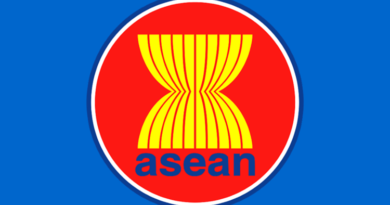OP-ED: PH vs Malaysia, Thai, Indo, Viet, SG: Last in race to 4th Industrial Revolution

From 43 participating countries with 265,000 students participating in the inaugural Program for International Student Assessment (PISA) 2000, the latest PISA 2018 had 79 countries taking part with over 600,000 students. The increasing number of participating countries and students attests to the international recognition of PISA as a useful tool in comparing the educational outcome of 15-year-old, mostly kindergarten to grade 9 students.
In reading, the Philippines’s average score was 340, the lowest in the list of 77 countries tabulated. In terms of percentage, students at the lowest Level 1a, 1b,1c and below 1c, over 80 percent of Philippines students are in that area — the worst among the 68 countries taking the computer-based assessment in reading. And it is also the worst if the other eight countries taking the paper-based test are included. Level 2 is considered the minimum level of proficiency in reading and the fact that the country has one of the most significant shares of low performers amongst all PISA-participating countries is shocking.
Compared with other Asean countries
Singapore placed number 2 globally in reading with a score of 549, and it has more than 8 percent students at Level 6 and 12 percent at Level 1a up to below 1c.
 Less than 1 percent of Philippine students scored the highest Level 6 in reading. The figure showed that the Philippines has a shortage of high achievers in reading at the 15-year-old student level, despite being an English medium of instruction country.
Less than 1 percent of Philippine students scored the highest Level 6 in reading. The figure showed that the Philippines has a shortage of high achievers in reading at the 15-year-old student level, despite being an English medium of instruction country.
In mathematics, the country scored 353 and ranked 77th in the tabulated 78-country list (ahead of the Dominican Republic’s 325).
In science, the country got 357 and again ranked 77th in the tabulated 78-country list (ahead of Dominican Republic’s 336).
In reading, Malaysia scored 415 and ranked 56th in the tabulation; Thailand scored 393 and ranked 66th; and Indonesia scored 371 and ranked 72nd. The unreported Vietnam, who has some issue on statistical accuracy and the Organization of Economic Cooperation and Development (OECD), withheld its result, claiming the score was 505 and should rank 13th.
In mathematics, Malaysia scored 440 and ranked 47th in the tabulation; Thailand scored 419 and ranked 57th; Indonesia scored 379 and ranked 79th. Vietnam claimed its score was 496 and ranked 24th.
In Science, Malaysia scored 438 and ranked 48th in the tabulation; Thailand scored 426 and ranked 53rd; Indonesia scored 396 and ranked 70th. Vietnam claimed its score was 543 and ranked 4th.
The OECD announced last December 3 the result of its triannual PISA conducted over 2018 in 79 participating countries. The PISA 2018 is the first time that the Philippines participated in this internationally acclaimed academic evaluation, and the dismal result should be a wake-up call to the country on the urgency of education reform.
The test intends to provide a meaningful and reliable comparison of education outcomes of the participating countries’ educational system by measuring 15-year-old students’ knowledge and skills in reading, mathematics and science. OECD mobilized many experts, educators and scientists from participating countries to build the globally valid assessment program. The emphasis on comparing educational outcome deemed critical to the student’s future and not just academic knowledge means the PISA carry important implication to a country’s prospect on human capital in economic and social development.
The test result received extensive public recognition, and many countries are using the PISA assessment report as an essential reference in their education reform. The best practices of the leading countries are being studied extensively by others, and many countries are known to use improvement over each PISA test performance as a gauge in measuring education system progress.
In the Philippine country note of OECD following the release of PISA 2018, the report said that expenditure per student in the Philippines was the lowest amongst all PISA-participating countries — and 90 percent lower than the OECD average. By comparison, education expenditure per student in Indonesia was 83 percent lower than the OECD average, and spending per student in the Dominican Republic was three times greater than that in the Philippines.
Urgency and direction
The statement of the Department of Education (DepEd) after the release of PISA 2018 that the PISA results, along with the results from locally conducted National Achievement Test, reflect the “urgency” to address gaps in improving the quality of basic education in the country should be taken seriously.
The improvement over education takes time and it is not clear if DepEd has incorporated any of the PISA 2018 findings in its Sulong Edukalidad initiative.
The free public education and increase in the salaries of public school teachers under President Duterte are steps in the right direction, but the keys are also in upgrading the quality of the curriculum, materials and methods, to properly equip the students in the fast-evolving global economy.
No one argues against the importance of education in this Fourth Industrial Revolution era. But how to prepare the citizens, and do it quickly, for the age is the real challenge.
If the education outcome is as ominous as the PISA 2018 revealed, the society should wake up and use the PISA as the wake-up call.
(Part of the Series avail online: PH: Highest Pornhub user, social media user, high teen pregnancy, lowest test scores?)
Dr. Henry Chan is an internationally recognized development economist based in Singapore. He is also a senior visiting research fellow at the Cambodia Institute for Cooperation and Peace and adjunct research fellow at the Integrated Development Studies Institute (IDSI). His primary research interest includes global economic development, Asean-China relations and the Fourth Industrial Revolution.
New Worlds by IDSI aims to present frameworks based on a balance of economic theory, historical realities, ground success in real business and communities, and attempt for common good, culture, and spirituality. We welcome logical feedback and possibly working together with compatible frameworks ([email protected]).









